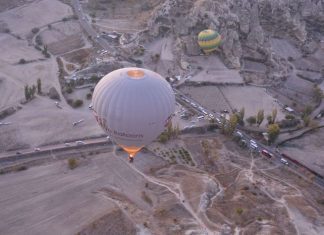Nevertheless the merchants make a handsome profit, for the least that a horse fetches [in India] is a hundred dinars (that is twenty-five dinars in Moroccan money) and it often sells for twice or three times that amount. A good horse sells for five hundred or more. The Indians do not buy them as racehorses, for in battle they wear coats of mail and cover their horses with armour; what they prize in a horse is its strength and length of pace. Their racehorses are brought from Yemen, Oman and Firs, and they cost from a thousand to four thousand dinars each.
Turkish women
A remarkable thing which I saw in this country was the respect shown to women by the Turks, for they hold a more dignified position than the men. The first time that I saw a princess was when, on leaving Qiram, I saw the wife of the amir in her waggon. The entire waggon was covered with rich blue woollen cloth, and the windows and doors of the tent were open. With the princess were four maidens, exquisitely beautiful and richly dressed, and behind her were a number of waggons with maidens belonging to her suite. When she came near the amir’s camp she alighted with about thirty of the maidens who carried her train.
On her garments there were loops, of which each maiden took one, and lifted her train clear of the ground on all sides, and she walked in this stately manner. When she reached the amir he rose before her and greeted her and sat her beside him, with the maidens standing round her. Skins of qumizz were brought and she, pouring some into a cup, knelt before him and gave it to him, afterwards pouring out a cup for his brother. Then the amir poured out a cup for her and food was brought in and she ate with him. He then gave her a robe and she withdrew.
I saw also the wives of the merchants and commonalty. One of them will sit in a waggon which is being drawn by horses, attended by three or four maidens to carry her train, and on her head she wears a conical headdress incrusted with pearls and surmounted by peacock feathers. The windows of the tent are open and her face is visible, for the Turkish women do not veil themselves. Sometimes a woman will be accompanied by her husband and anyone seeing him would take him for one of her servants; he has no garment other than a sheep’s wool cloak and a high cap to match.
Read More about Ibn Battuta part 20








